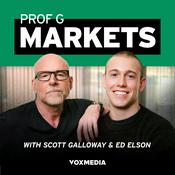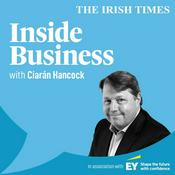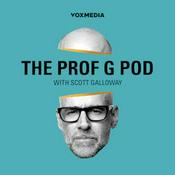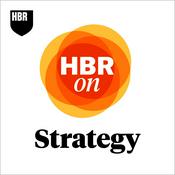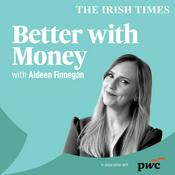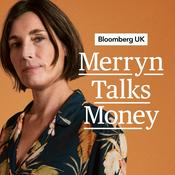Do One Better with Alberto Lidji in Philanthropy, Sustainability and Social Entrepreneurship

358 episodes

Surita Sandosham, President and CEO of Heifer International on Ending Hunger Through Locally Led Development
05/1/2026 | 33 mins.
In this episode, Surita Sandosham, President and CEO of Heifer International, shares how one of the world’s most established development organizations is reimagining the fight against hunger and poverty through locally led, systems-based solutions. With more than 80 years of experience and work spanning 19 countries across Africa, Asia, and the Americas, Heifer International partners with smallholder farmers, especially women, to build sustainable, climate-resilient food systems. The conversation explores how farmers move from subsistence to thriving producers by strengthening social capital, building profitable value chains, and creating cooperative models that unlock market access, finance, and long-term resilience. Surita explains why women and youth are central to transforming agriculture, particularly in contexts where women face barriers to land rights, credit, and decision-making, and where young people often see farming as an unattractive future. From self-help groups and savings models to partnerships that enable mechanization and entrepreneurship, the discussion highlights how dignity, agency, and opportunity are created at the community level. The episode also dives into the Personal Transformation Index, a data-driven framework developed with academic partners to measure confidence, leadership, decision-making, and civic engagement among farmers. The results reveal how social capital and values-based development translate into stronger livelihoods, reduced household conflict, shared decision-making, and greater participation in local governance. Throughout the conversation, Surita reflects on the urgency of global food insecurity, the limitations of working in isolation, and the importance of long-term partnerships with governments, multilaterals, businesses, and donors. The episode closes with a powerful reminder that ending hunger is not only about food production, but about building inclusive systems where farmers are recognized as producers, leaders, and stewards of the planet. Visit our Knowledge Hub at Lidji.org for information on 350+ case studies and interviews with remarkable leaders in philanthropy, sustainability and social entrepreneurship.

Key Trends: How Philanthropy Transformed in 2025
29/12/2025 | 7 mins.
As we close out 2025, host Alberto Lidji analyses fifty deep-dive conversations from the past year to identify the key trends currently reshaping the social impact landscape. This special 2025 roundup episode moves beyond individual projects to explore the fundamental evolution of systemic transformation. Alberto synthesises the year’s insights into three defining shifts: the transition from isolated funding to orchestrator models, the strategic focus on structural root causes, and a fundamental evolution in how we approach leadership and burnout. Key Themes Explored in This Episode: The Evolution of Collaboration: Why the retreat of traditional funding streams in 2025 turned partnership from an aspiration into a vital survival mechanism. The Orchestrator Model: Exploring the move toward philanthropic bridge-building, where foundations support government-led initiatives and remove systemic friction points rather than driving isolated agendas. Rigidity in Mission, Flexibility in Approach: Why the most effective strategies this year focused on markets and addressing systemic drivers rather than treating symptoms. The Grace Shift: A look at how leadership archetypes are evolving to prioritise personnel well-being and structural support as prerequisites for long-term impact. The Call to Agency: A concluding reflection on the power of citizen entrepreneurship and why individual action remains the ultimate antidote to global anxiety. Visit our Knowledge Hub at Lidji.org for information on 350+ case studies and interviews with remarkable leaders in philanthropy, sustainability and social entrepreneurship.

Brian Sommerlad, Chairman of CLEFT: Treating Cleft Lip and Palate Through Collaboration, Training and Trust
22/12/2025 | 27 mins.
Cleft lip and palate is one of the most common congenital conditions worldwide, yet effective care goes far beyond repairing a visible deformity. It requires long-term, multidisciplinary support that addresses speech, hearing, dental development and psychological wellbeing. In this episode, Brian Sommerlad, a surgeon and Chairman of CLEFT, shares four decades of experience in cleft care across the UK and low and middle income countries. Drawing on extensive work in places such as Bangladesh and Nepal, he explains why short-term surgical missions alone are not enough and how well-intentioned philanthropy can sometimes undermine local health systems. The conversation explores what sustainable cleft care really looks like. Brian outlines CLEFT’s distinctive approach, which focuses on training local professionals, funding non-surgical roles such as speech therapists and orthodontists, and supporting multidisciplinary teams that can continue delivering care long after external support has stepped back. Key topics include: What cleft lip and palate is, how common it is, and why it affects far more than appearance The lifelong importance of speech therapy, hearing support and dental care The psychological and social impact of cleft conditions on children and families Why teaching and capacity-building create more impact than simply doing operations How poorly designed NGO activity can unintentionally weaken local services The value of treating local clinicians, hospitals and governments as equal partners Practical insights into allocating philanthropic funding for long-term benefit Brian also reflects on his own journey from medical training in Australia to international work spanning Vietnam, Bangladesh, Iraq and beyond, offering candid observations on what has and has not worked in global health over time. This episode is a thoughtful examination of how healthcare philanthropy can move from short-term intervention to lasting change, with lessons that extend well beyond cleft care alone. Visit our Knowledge Hub at Lidji.org for information on 350+ case studies and interviews with remarkable leaders in philanthropy, sustainability and social entrepreneurship.

Roger Federer Foundation's CEO, Maya Ziswiler, on their New Strategy and Achieving Philanthropic Impact
15/12/2025 | 28 mins.
This episode explores the work of the Roger Federer Foundation through a conversation with Maya Ziswiler, Chief Executive Officer, focusing on early childhood education, prevention-focused philanthropy, and long-term systems change. Maya explains how the Foundation works to give children a better start in life through early and foundational learning, with the majority of its work concentrated in Southern Africa and a growing portfolio in Switzerland. In Southern Africa, the Foundation partners closely with governments and locally rooted organisations across six countries to strengthen school readiness and early learning systems. In Switzerland, it is developing an approach that uses movement to strengthen body and mind, with an emphasis on preventing mental health challenges later in life. A central theme of the discussion is the Foundation’s data-driven School Readiness Initiative, including tablet-based learning kiosks and the Child Steps assessment tool. These tools support teachers, simplify reporting, and generate actionable data for decision making at school, regional, and national levels. Key milestones include nationwide adoption of the assessment tool in Zimbabwe and the handover of programme implementation to government authorities in parts of South Africa. The conversation also covers the Foundation’s strategic transition, with a new strategy to be launched in early 2026. Maya reflects on the shift from a single flagship solution towards an early learning continuum, the importance of partnerships, and the role of catalytic funding in strengthening an underfunded sector. The episode also traces Maya’s leadership journey from the private sector to UNICEF, UBS Optimus Foundation, and now the Roger Federer Foundation, alongside the opportunities and challenges of leading a foundation associated with a global sporting icon. Fun fact: The conversation is conducted by Alberto Lidji, former CEO of the Novak Djokovic Foundation, who interviews the CEO of the Roger Federer Foundation, offering a distinctive and collegial backdrop. Visit our Knowledge Hub at Lidji.org for information on 350+ case studies and interviews with remarkable leaders in philanthropy, sustainability and social entrepreneurship.

Guy Cave, President of the Legatum Foundation on Creating and Launching Collective Philanthropy Funds
08/12/2025 | 32 mins.
In this episode, Guy Cave, President of the Legatum Foundation, discusses how the foundation launches and scales collaborative funds that focus on ambitious, system-level change. Rather than distributing small grants, the foundation pilots approaches with local organisations, tests what works, and—when the potential for large-scale impact is clear—spins out independent funds with their own leadership, governance and investor base. Guy traces the journey behind four existing funds: the END Fund, focused on neglected tropical diseases; the Freedom Fund, which addresses human trafficking and modern slavery; the Luminos Fund, bringing out-of-school children back into learning; and, most recently, the Resilio Fund, which supports community-led humanitarian response through micro-grants to hyper-local groups. Collectively, these funds have mobilised more than US$1 billion. He also introduces two current pilots that may become future funds: care reform to help children move safely from institutions into family-based care, and criminal justice reform. Throughout the conversation, Guy unpacks how new ideas emerge, how evidence is generated, how partners are brought in, and how to let go so that independent funds—and their CEOs—can thrive. For anyone interested in collaborative philanthropy, local leadership, or building vehicles that others can support, this episode offers practical insight into sequencing, partnership, and learning at scale. Visit our Knowledge Hub at Lidji.org for information on 350+ case studies and interviews with remarkable leaders in philanthropy, sustainability and social entrepreneurship.
More Business podcasts
Trending Business podcasts
About Do One Better with Alberto Lidji in Philanthropy, Sustainability and Social Entrepreneurship
Listen to Do One Better with Alberto Lidji in Philanthropy, Sustainability and Social Entrepreneurship, Working Hard with Grace Beverley and many other podcasts from around the world with the radio.net app

Get the free radio.net app
- Stations and podcasts to bookmark
- Stream via Wi-Fi or Bluetooth
- Supports Carplay & Android Auto
- Many other app features
Get the free radio.net app
- Stations and podcasts to bookmark
- Stream via Wi-Fi or Bluetooth
- Supports Carplay & Android Auto
- Many other app features


Do One Better with Alberto Lidji in Philanthropy, Sustainability and Social Entrepreneurship
download the app,
start listening.

